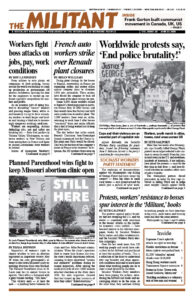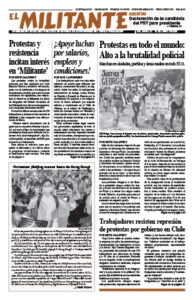MIAMI — An important victory for working people was registered in Florida May 24 when U.S. District Judge Robert Hinkle overturned some of the restrictions imposed by Gov. Ron DeSantis and the state legislature on the newly won right of ex-felons to vote. The decision will have a direct impact on tens of thousands of workers with convictions here.
Over a million people signed petitions to put Amendment 4 on the ballot in 2018 to overturn Florida’s longstanding prohibition on former prisoners’ right to vote. The state constitution was amended after more than 64% voted yes.
But the governor and state legislature passed a vindictive law last year making it illegal for those with felony convictions to vote if they hadn’t paid off all outstanding fines, court costs and victim compensation awards. This would bar some 775,000 ex-prisoners, over half of those who would be able to vote from the passage of Amendment 4, from doing so.
The judge ruled that the requirement is unconstitutional. The plaintiffs — former inmates — argued the state had essentially imposed a new poll tax.
Ex-felons need to get a court order acknowledging they are unable to pay before they can register, which “will still deter at least some eligible citizens from registering and voting,” Judge Hinkle said.
DeSantis gave notice in court May 29 that he intends to appeal. He requested the ruling be stayed while the appeal is considered, which would again bar former felons from registering.

